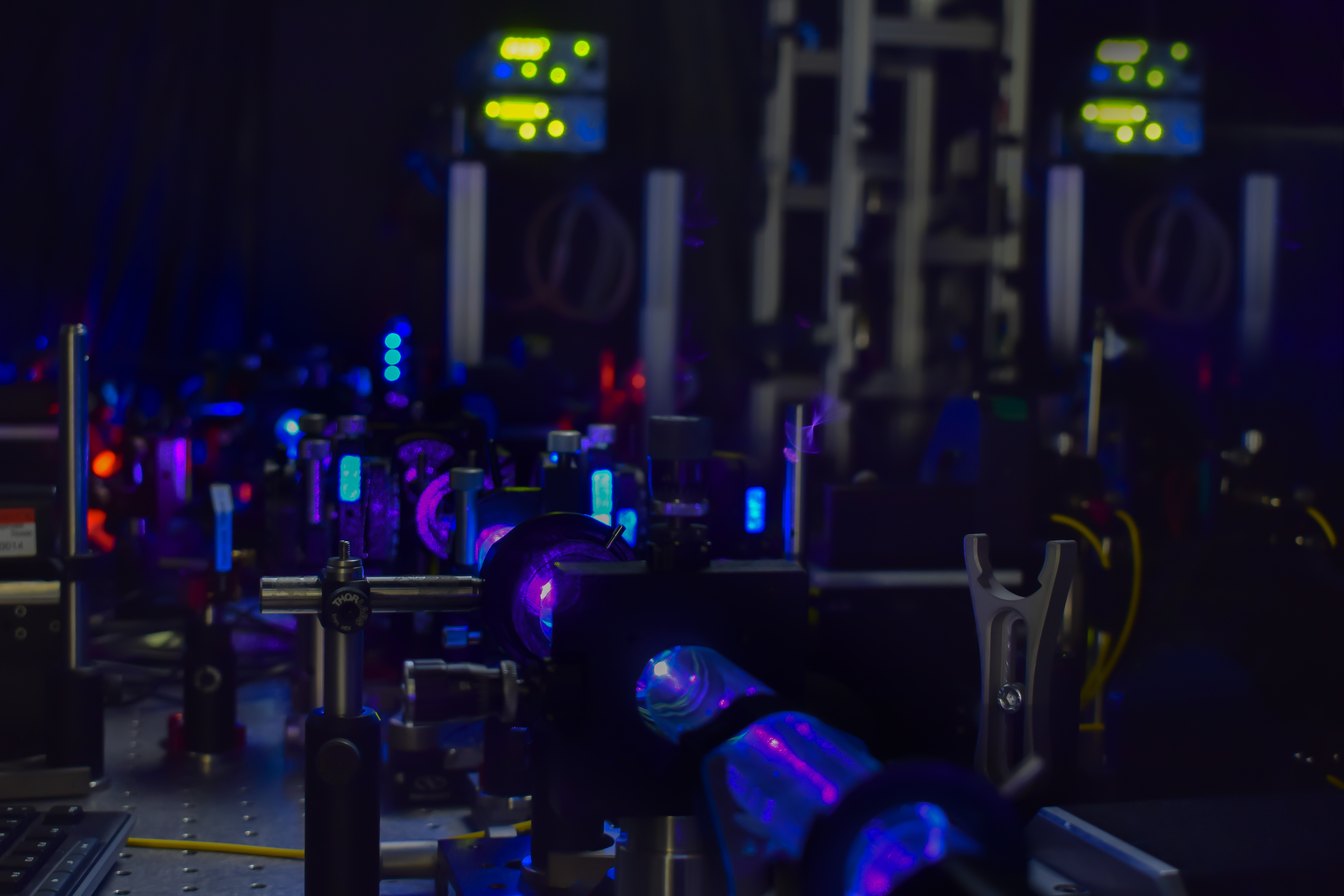CD Laboratory for Photonic Quantum Computer

This CD Laboratory explores technical possibilities for an optical quantum computer in the cloud that is accessible to scientists, industry and the general public.
Conventional computers process and store information in the form of zeros (0) and ones (1), which are represented as bit sequences and linked with logical operators (AND, OR, NOT). Quantum computers utilise the fact that the states zero and one can be superimposed in the quantum world and can therefore be used simultaneously.
The quantum computer can therefore perform many operations simultaneously that a conventional computer has to perform one after the other. What the bits are for conventional computers, which assume either the value (0) or (1), the quantum bits or qubits are for quantum computers, where the values (0) and (1) can be present simultaneously. A qubit can therefore represent two pieces of information at the same time and each additional qubit doubles the number of pieces of information that can be used simultaneously. An important consequence of this is that the number of simultaneously possible computing operations of a quantum computer does not increase linearly but exponentially. Quantum computers can therefore enable a variety of new applications that are unattainable for conventional computer technology.
Individual light quanta, so-called light particles or photons, are particularly suitable for applications in the field of quantum information processing due to their robustness and individual addressability. In addition, the intrinsic mobility of individual photons makes them the ideal quantum information carriers for quantum networks and delegated quantum computer clouds.
The aim of this CD Laboratory is to develop quantum technology for the realisation of quantum computers and quantum computer clouds suitable for practical applications. The main goal will be a versatile quantum computer based on a photonic platform. In addition, society and industry will be prepared for this powerful but non-intuitive technology by making the photonic quantum computer accessible online in the cloud. This will enable students, scientists and the general public to run quantum algorithms on real hardware via the internet.
The first iteration of the online quantum computer will be able to process a few photons or quantum bits in a controllable photonic circuit for various applications. Building on the online quantum computer setup, the photonic quantum technology developed in this project will be used to demonstrate new applications.
Christian Doppler Forschungsgesellschaft
Boltzmanngasse 20/1/3 | 1090 Wien | Tel: +43 1 5042205 | Fax: +43 1 5042205-20 | office@cdg.ac.at


